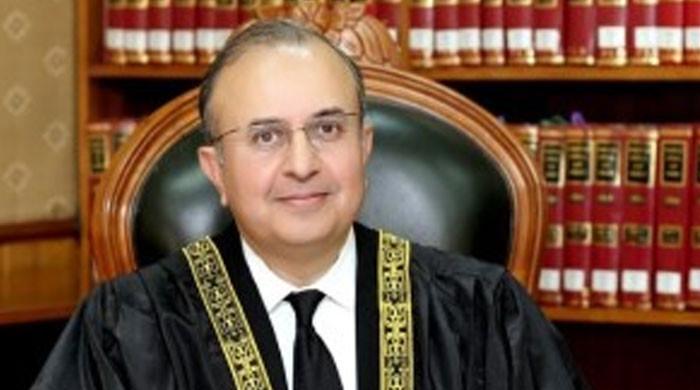Justice Shah Voices Concerns Over Executive Influence on Judiciary
In a recent communication, Supreme Court Justice Mansoor Ali Shah has cautioned against the potential sway of the executive branch over both the court’s public image and the Judicial Commission of Pakistan (JCP). The letter, spanning two pages, articulates apprehensions regarding the balance of power.
“It is crucial to safeguard the Court’s reputation from being shaped by the executive’s agenda, which increasingly seems to exert considerable influence over the JCP’s operations,” Justice Shah noted in his correspondence to the JCP secretary, penned before the session on June 19.
The context of this letter is the JCP’s recent session, led by Chief Justice of Pakistan (CJP) Yahya Afridi, where the extension of the constitutional bench’s term until November 30, 2025, received approval.
Back in October 2024, the parliament had sanctioned constitutional amendments that granted the legislature authority in selecting the chief justice, defining the tenure of the top judicial position, and establishing constitutional benches. These amendments faced opposition from the Pakistan Tehreek-e-Insaf (PTI), Jamaat-e-Islami (JI), Sunni Ittehad Council (SIC), bar associations, and former presidents of the Supreme Court Bar Association (SCBA).
Following these legislative changes, the CJP Afridi-led JCP established the bench through a 7-5 decision, with a majority favoring the constitutional bench.
Justices Shah and Muneeb Akhtar, along with PTI members Omar Ayub and Shibli Faraz, dissented from this decision.
Earlier in the week, the JCP convened twice, approving the extension in the initial session and addressing a policy matter under Article 175A(20) of the Constitution concerning the annual performance assessment of high court judges.
During the subsequent session, the judicial body, through a majority vote, prolonged the tenure of the Sindh High Court’s (SHC) constitutional benches for six months, effective from July 23, 2025.
In his letter, Justice Shah emphasized the need for the JCP to postpone extending the terms of judges on the constitutional bench until the Supreme Court resolves the constitutionality of the 26th Constitutional Amendment.
“Continuing with extensions or re-appointments to a constitutional bench, while its legal basis is under serious constitutional scrutiny, exacerbates the institutional crisis and undermines the court’s credibility,” the judge stated.
The senior judge underscored the importance of resolving the 26th amendment case, asserting that the ongoing delay was “palpably diminishing the court’s reputation and eroding public trust in its impartiality.”
Justice Shah expressed concern that the JCP was “prioritizing judicial extensions insensitively” and suggested that all SC judges should be nominated to the constitutional bench while the matter is pending adjudication.
He also advocated for establishing formal criteria for selecting judges for the constitutional bench, noting that the “absence of objective standards makes past nominations susceptible to accusations of favoritism.”
“This ad-hoc approach has already significantly impacted the legitimacy of the constitutional bench, and the continued exclusion of senior judges without justification only worsens this perception,” he concluded.



Comments (0)
No comments yet. Be the first to comment!
Leave a Comment